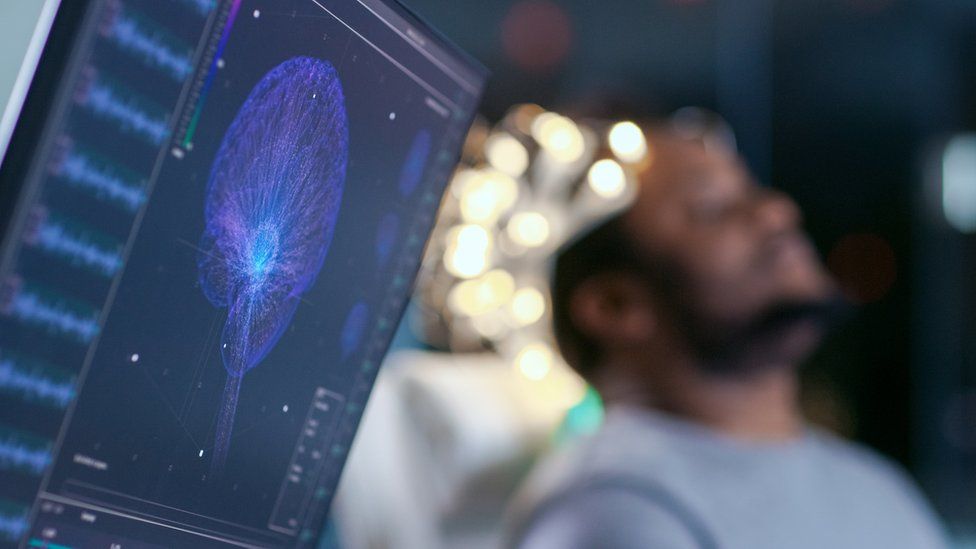Moonlit-Sleepless Nights
"What we did is we came up with a set of data that shockingly proves that this is real, that there's an actual effect of the moon on our sleep.""The moment I was, like, just completely in awe was when we [looked] at the data from the students. This beautiful lunar rhythm emerged with the exact same shape and phase as our Toba-Qom subjects...""[There is already good evidence that trying to] fight against environmental cycles and trying to counterpoise your will to sleep at a different time against the natural cues is actually very bad for your health.""We now have more evidence that you can't just get rid of environmental cues."Leandro Casiraghi, post-doctoral researcher, Department of Biology, University of Washington
 |
| “At certain times of the month, the moon is a significant source of light in the evenings, and that would have been clearly evident to our ancestors thousands of years ago,” said Casiraghi. |
"[The study communities were] ideal [to study since] they are all ethnically and socio-culturally homogeneous, so it has become an outstanding opportunity to address questions about sleep under different levels of urbanization without other confounding effects.""When you find what you expected, typically you say, 'Well, is this really true'? But when you find something that you did not expect, then you say, 'Well, this is a real phenomenon'.""The main limitation is that we cannot establish causality. We have no idea how the moon is doing this to us.""It turns out that the nights that precede the full moon are the nights that have more moonlight availability on the first half of the night.""So if you are awake, you will be kept awake by this availability of moonlight during the evening. [The study's findings suggest that the moon's effect on sleep is] so robust that even if we don't know the mechanism, we can still capitalize on the findings."Horacio de la Iglesia, professor of biology, University of Washington
 |
| Getty Images |
Studies are emerging suggesting that it is not, as thought by some, that powerful effects of the sun cycle impact upon sleep and circadian rhythms, but rather it may be the moon instead that impacts our ability to have a restful night sleep. The journal Science Advances published a paper whose finding was that people have a tendency to experience difficulties sleeping on the nights that lead up to a full moon. Sleep patterns among the study's 98 participants appeared to fluctuate over the 29-1/2 day lunar cycle.
Which leads to a situation where late bedtimes and the resultant least amount of rest occur on three to five nights before the moon reaches its brightest phase. Sleep data derived from an additional group of over 460 people validated that take-away. The study found that it took people on average 30 minutes longer to fall asleep ahead of the full moon, sleeping for 50 fewer minutes those nights.
 |
| Volunteers in the study spent two separate nights at a sleep lab under close observation. Getty Images |
The sleep patterns of three Toba Indigenous communities (known as the Qom people) in northeast Argentina were involved; one rural with no access to electricity, a second with limited access, while a third was located in an urban setting with full electricity access. Information was collected over one to two lunar cycles, with participants given wrist monitors whose data revealed the unusual decreased sleep quality pattern on nights leading to a full moon. This pattern was observed across all three groups.
The researchers had entered their study with the expectation that sleep disruption would occur the actual night of the full moon, so this conclusion was not anticipated. Sleep data from 464 Seattle-area college students was also evaluated, and this data affirmed that collected from the Toba communities. What remained unclear, however was the why of the situation. Leading the researchers to speculate that moonlight availability may be the critical issue involved.
The waxing moon becomes brighter as it approaches a full moon and typically rises in the late afternoon or early evening, thus exposing people to more light. The fly in that ointment is that people who live in urban environments are exposed to night-time artificial light, often more intense than moonlight, commented Mark Wu, a professor of neurology, medicine and neuroscience at Johns Hopkins University, not involved in the study. "If there's no light at all, then [moonlight] can be meaningful. But with modern lighting, it's essentially irrelevant."
The "underlying hypothesis" included in the paper suggests sleep pattern might be linked to alterations in the moon's gravitational pull; that gravitational pull from the moon might impact to make people more sensitive to light availability in the evening; artificial or natural moonlight. The researchers plan to "pursue these avenues on these questions, trying to figure out what's the force driving these changes", stated Dr.Casiraghi.

Labels: Gravitational Pull, Moonlight, Research, Sleep Disruptions, Waxing Moon

0 Comments:
Post a Comment
<< Home